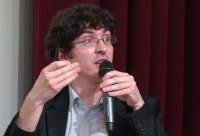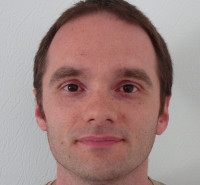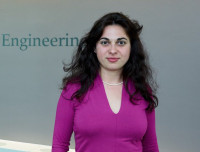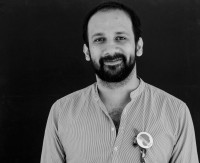Economics & Global Development
Big Data
Social Protection
Econometric Models & Mathematics
Behavioral Economics & Decision Sciences
Data Privacy & Protection
Post-Doctoral Fellowships
France
2017.12.31
Gauging the impact of reform on the French system of taxes and public benefits
The type of computerized analytical tool Fabre is working on is called microsimulation. « In simple terms, it consists in simulating taxes and social benefits of each micro-level unit (an individual, or a household) of a database representative of a given population, under any tax and benefit system. Then, it is possible to draw conclusions that apply to higher levels of aggregation such as an entire country », explains Dr. Brice Fabre. « To estimate the effects of various reform options, it is standard for public administrations to rely on a microsimulation model which takes into account the full diversity of individuals’ characteristics ». « But these current state-of- the-art models are based on household surveys, with limited information on detailed tax characteristics, and a limited sample », he pinpoints.
Data fusion : towards more accurate results
This project is expected to create an input of much improved quality by being based on a large set of administrative data, including anonymous income tax records, benefit records, social security records, etc. To integrate this data into the model, the research makes use of a process called data fusion. « Data fusion is a rapidly developing technology in the context of Open Data. It is receiving growing attention in economics, but has rarely been used in the context of microsimulation », the researcher points out. Another important innovation of Fabre’s project is the investigation of behavioural responses to changes in taxes and benefits and their impact on total tax revenues. Indeed, by matching various administrative data together, the objective is also to study how individuals are most likely to react to various reforms, taking into account labour supply, tax avoidance, income shifting, etc. A database merging different administrative data sources is expected to give more precise evidence and to bring new knowledge on these behavioral responses. « The development of such a model, available in open source, is key to improve the policy debate on changes in the tax and benefit system », says Fabre. « This is all the more true in a context where there is a growing attention towards structural reforms of our tax systems. » By aiming to make his model available in open source, Dr. Fabre’s project promises to considerably change the expertise available in the public debate and bring about game-changing social innovation.

Brice
FABRE
Institution
Institut des Politiques Publiques
Country
France
Nationality
French
Related articles
Finance, Investment & Risk Management
Pandemics & Infectious Diseases
Economics & Global Development
Covid-19
Financial Markets, Modelling & Pricing
Economic Loss & Disaster Risk Financing
Insurance & Risk Management
AXA Award
France
2020.08.31
An Extreme Value Model For the Analysis of the COVID-19 Pandemic and Its Impact, and the Mitigation of Future Related Crises
The second strand of work will harness the vast wealth of functional data at our disposal to construct estimators for... Read more

Gilles
STUPFLER

